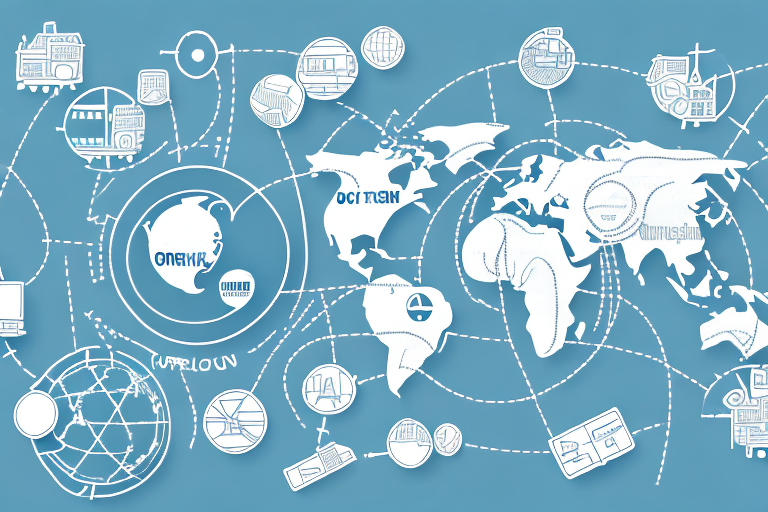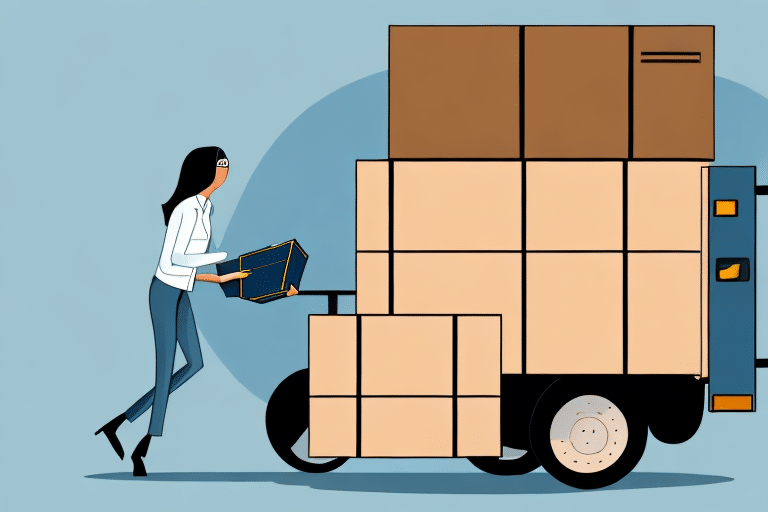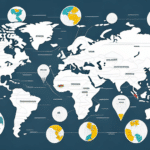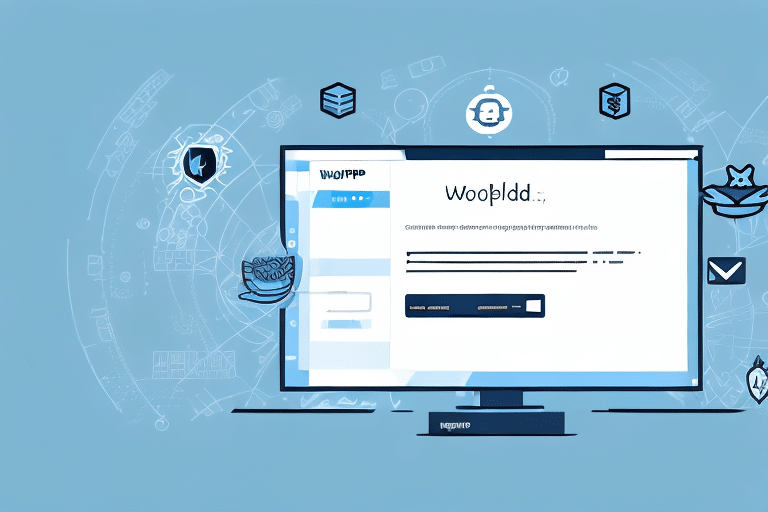Understanding the Role of a Customs Broker in the Supply Chain
International trade involves a complex web of regulations, paperwork, and documentation that can be overwhelming and confusing. This is where a customs broker comes in. In this article, we will discuss the important role that customs brokers play in the supply chain and how they help businesses navigate the complexities of international trade.
The Importance of Customs Brokers in International Trade
Customs brokers serve as intermediaries between businesses and government agencies involved in international trade. They are responsible for ensuring that shipments comply with various regulations, laws, and procedures that govern the import and export of goods.
The role of a customs broker is particularly important in international trade because it involves dealings with multiple countries and their respective regulations. This can be especially complex for small to medium-sized businesses that may lack the resources or expertise to navigate these regulations on their own.
Furthermore, customs brokers also provide valuable services such as:
- Classification of goods
- Calculating duties and taxes
- Obtaining necessary permits and licenses
They also act as a liaison between businesses and customs officials, helping resolve any issues that may arise during the import or export process.
How Customs Brokers Help Importers Navigate Complex Regulations
Customs brokers are experts in regulations, trade agreements, and procedures related to international trade. They work closely with importers to help them navigate the complexities of the customs clearance process, including obtaining permits and licenses, completing paperwork, and paying duties and taxes.
Customs brokers also help importers avoid costly delays and fines by ensuring that all documentation is complete and accurate. They can also provide guidance on:
- Product classification
- Valuation
- Other factors that may impact the import process
Furthermore, customs brokers can assist importers in identifying potential risks and compliance issues that may arise during the import process. They provide advice on mitigating these risks and ensuring that all necessary regulations and laws are followed.
The Key Responsibilities of a Customs Broker in the Supply Chain
The responsibilities of a customs broker vary depending on the specific needs of their clients and the nature of the goods being shipped. However, some key responsibilities include:
- Ensuring compliance with international trade regulations
- Classifying goods and calculating duties and taxes
- Obtaining necessary permits and licenses
- Acting as intermediaries between businesses and other parties involved in the supply chain, such as freight forwarders and carriers
In addition to these primary responsibilities, customs brokers also provide valuable advice and guidance to their clients regarding international trade regulations and compliance. They stay up-to-date with changes in laws and regulations and help their clients navigate complex customs procedures. Customs brokers play a crucial role in ensuring the timely and efficient movement of goods across borders, which is essential for businesses that rely on international trade to grow and succeed.
The Benefits of Hiring a Customs Broker for Your Business
Hiring a customs broker has numerous benefits for businesses involved in international trade, including:
- Expertise in navigating complex regulations
- Assistance in avoiding costly delays and fines
- Guidance on product classification and valuation
- Identification of potential cost savings and optimization opportunities
A customs broker can also provide valuable insights into industry trends, best practices, and other factors that can impact a business’s success in international trade. Furthermore, customs brokers can assist businesses in identifying potential cost savings and optimization opportunities within their supply chain. They also provide guidance on trade agreements and tariffs, helping businesses to take advantage of preferential rates and avoid unnecessary expenses. By working with a customs broker, businesses can streamline their international trade operations and focus on their core competencies while leaving the complexities of customs compliance to the experts.
How to Choose the Right Customs Broker for Your Business Needs
When choosing a customs broker, it’s important to do your research and choose a reputable and experienced provider. Look for a broker who is licensed, insured, and has a track record of success in your industry. It’s also important to consider their fees and pricing structure, as well as their communication and customer service policies.
Make sure to ask for references and check online reviews to get a sense of a broker’s reputation and level of customer satisfaction. A good customs broker should be able to provide tailored solutions to meet your specific needs and overcome any challenges that may arise during the import/export process.
Another important factor to consider when choosing a customs broker is their knowledge of international trade regulations and compliance requirements. A reputable broker should be up-to-date on the latest regulations and be able to guide you through the complex process of importing and exporting goods.
Additionally, consider the technology and tools that a customs broker uses to manage their operations. Look for a broker who uses advanced software and automation tools to streamline the customs clearance process and provide real-time tracking and reporting.
The Legal Requirements for Becoming a Licensed Customs Broker
In order to become a licensed customs broker in the United States, individuals must pass a rigorous exam administered by U.S. Customs and Border Protection (CBP). The exam covers a wide range of topics related to international trade, including import and export regulations, tariff schedules, and trade agreements.
Other requirements for becoming a licensed customs broker may vary depending on the country or region in which you operate. It’s important to consult with the relevant government agencies and industry associations to ensure that you are in compliance with all applicable laws and regulations.
Additionally, customs brokers must maintain a high level of ethical standards and integrity in their business practices. They are responsible for ensuring that all customs declarations and documentation are accurate and complete and must be knowledgeable about the products being imported or exported. Customs brokers may also be required to obtain a surety bond to guarantee payment of any duties or taxes owed to the government.
Understanding the Difference Between a Customs Broker and Freight Forwarder
While customs brokers and freight forwarders have some similarities in their roles in the supply chain, there are key differences between the two. A customs broker primarily deals with the import and export of goods and ensures compliance with regulatory requirements.
A freight forwarder, on the other hand, is responsible for the physical transport of goods from one location to another. This may involve arranging transportation, warehousing, and other logistical services. Some freight forwarders may also offer customs brokerage services as part of their overall package of services.
It is important to note that while customs brokers and freight forwarders may have overlapping responsibilities, they serve different functions in the supply chain. Customs brokers are experts in navigating the complex regulations and requirements of international trade, while freight forwarders specialize in the physical movement of goods. Understanding the difference between these two roles can help businesses make informed decisions about which services they need to ensure the smooth and efficient movement of their goods across borders.
Common Challenges Faced by Customs Brokers and How to Overcome Them
Customs brokers face a number of challenges in their work, including changing regulations, shifting market conditions, and increasing competition. In order to overcome these challenges, brokers must stay up-to-date with industry trends, remain adaptable to changing circumstances, and focus on providing high-quality, tailored solutions to their clients.
Other challenges that customs brokers may face include:
- Technology limitations
- Logistical issues
- Communication breakdowns with clients or other parties involved in the supply chain
By maintaining open lines of communication and leveraging new technologies and automation tools, customs brokers can overcome these challenges and provide greater value to their clients.
One of the biggest challenges faced by customs brokers is the increasing complexity of global trade. With the rise of e-commerce and cross-border transactions, brokers must navigate a complex web of regulations and requirements to ensure that goods are transported legally and efficiently. This requires a deep understanding of international trade laws and regulations, as well as the ability to quickly adapt to changes in the global marketplace.
Innovations in Technology and Automation for Customs Brokers in the Digital Age
Advances in technology and automation are transforming the customs brokerage industry, making it easier and more efficient for brokers to manage the complex paperwork and documentation required for international trade. Some of the innovations being adopted by customs brokers include:
- Advanced software for documentation management
- Automation tools for streamlining customs clearance processes
- Real-time tracking and reporting systems
- Digital tools for sustainability tracking
These innovations are helping customs brokers streamline their operations, reduce costs, and improve overall service delivery to clients.
One of the most significant benefits of these technological advancements is the reduction in human error. With automated systems, customs brokers can avoid mistakes that can lead to costly delays and penalties. Additionally, these innovations enable customs brokers to provide more accurate and timely information to their clients, improving transparency and trust in the industry.
Another area where technology is making a significant impact is in sustainability. Customs brokers are increasingly using digital tools to track and manage the environmental impact of international trade. This includes monitoring carbon emissions, reducing waste, and promoting sustainable practices throughout the supply chain.
The Future of Customs Brokering: Trends and Predictions for the Industry
The customs brokerage industry is poised for continued growth and innovation, driven by ongoing globalization, expanding international trade, and rapid advances in technology. Some key trends and predictions for the customs brokerage industry include:
- Increased emphasis on sustainability and ethical practices
- Adaptation to the rise of e-commerce and cross-border online sales
- Greater use of advanced technologies and automation tools
- Improved collaboration and customer-centric service delivery
As the customs brokerage industry evolves, it is likely that we will see a greater emphasis on innovation, collaboration, and customer-centric service delivery. By staying ahead of these trends and embracing new technologies and practices, customs brokers can continue to provide high-value services and support to businesses engaged in international trade.
One of the key drivers of change in the customs brokerage industry is the increasing demand for sustainability and ethical practices. Customers are becoming more conscious of the environmental and social impact of their supply chains and are seeking out brokers who can help them meet their sustainability goals. This has led to the development of new services and solutions, such as carbon footprint tracking and ethical sourcing verification.
Another trend likely to shape the future of customs brokering is the rise of e-commerce and cross-border online sales. As more businesses turn to online channels to reach global markets, customs brokers will need to adapt their services to meet the unique needs of these customers. This may include providing specialized support for small and medium-sized enterprises or developing new tools and technologies to streamline the customs clearance process for online orders.






















